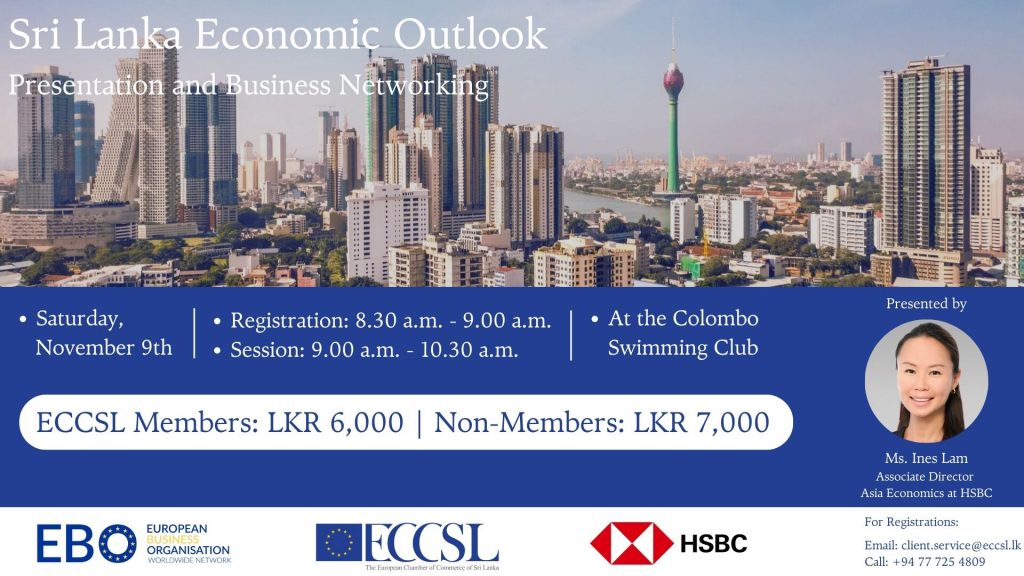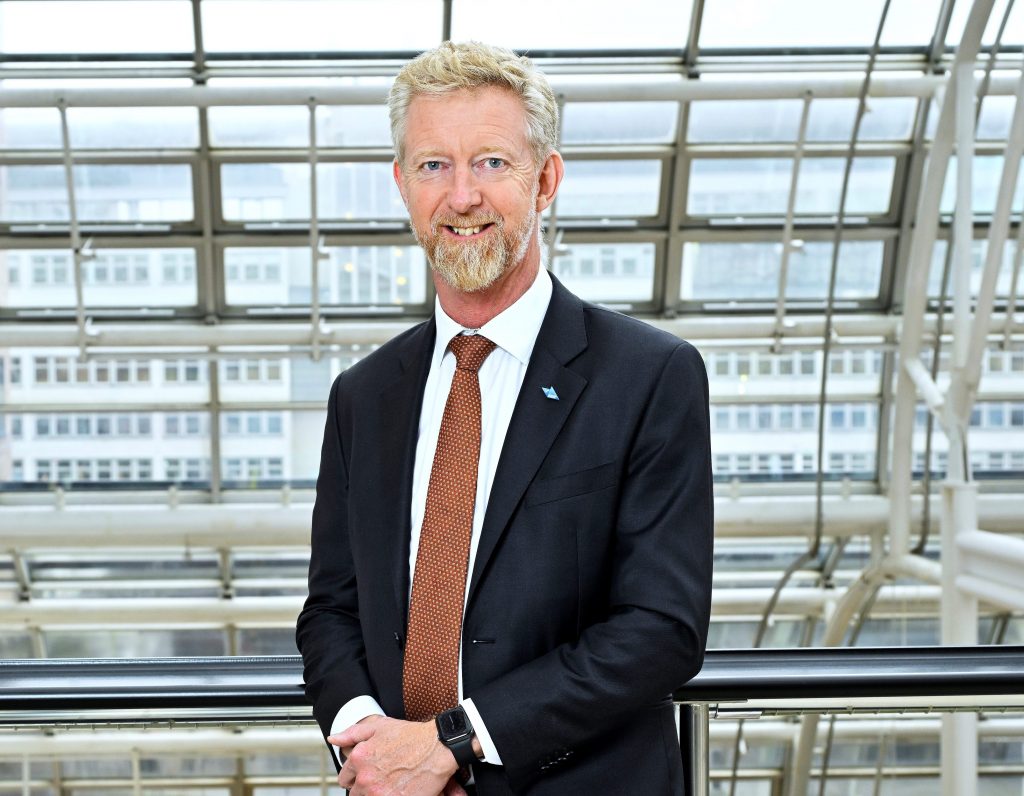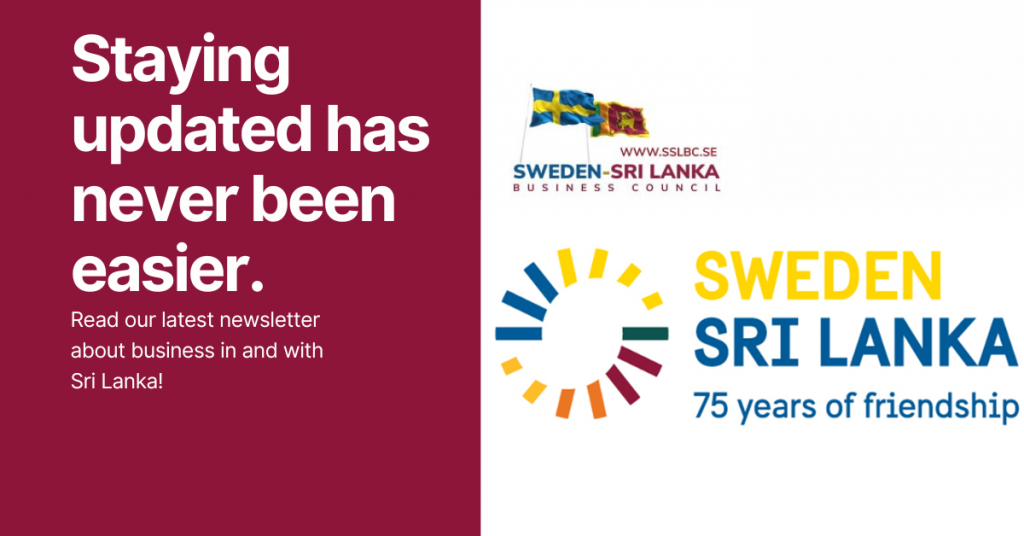Newsletter from our sister organisation European Chamber of Commerce in Sri Lanka
Business Sweden Global Export
Newsletter 17th Nov 2024
Three Quick Questions with Johan Hedén Hultgren , SWIFTCOURT
3 quick questions to Johan Hedén Hultgren, CEO of Swiftcourt, which recently established itself in Sri Lanka. He has a background as a professional soccer player in Trelleborgs FF but ended his career early to study law. During his studies, the idea for what would become Swiftcourt was born. The company offers digital contracts and payment solutions between private individuals and operates in seven European markets.

Why did you choose to establish Swiftcourt in Sri Lanka?
The time was right to establish a presence in Sri Lanka. We have a long-standing relationship with the Kinnevik sphere, which owns the buy-and-sell site Ikman, the Sri Lankan equivalent of the Swedish Blocket. Ikman needed a payment solution to offer its users. We were able to provide it. The fact that Ikman has about 300,000 active users meant that we could immediately reach the necessary volume in our business.
What are the characteristics of the Sri Lankan business community from your experience?
I’ve been there twice in 2024, most recently a month ago. What strikes me is the openness. This applies both to the way visitors are treated and to the Sri Lankans’ appetite for new things. There is a genuine desire for change and development. I also feel that it is much easier to establish yourself and operate in the Sri Lankan business climate compared to the Indian one.
What are the goals ahead for Swiftcourt in Sri Lanka?
We went live a month ago. The establishment is a steppingstone to the rest of South East Asia like Bangladesh, Vietnam and India. We are also looking at the possibility of building up developer expertise in Sri Lanka. Our goal is to become a full-scale payment institution. This will require further development of our technical solutions. We see that we can develop this in Sri Lanka.
ECCSL Newsletter
ECSSL seminarium

Info från Svenskt Näringsliv
Hej
För kännedom skickar jag över denna länk: Global Gateway – Affärsmöjligheter – Europeiska kommissionen
Ni har säkert hört talas om Global Gateway men inte riktigt förstått hur man kan skapa sig affärsmöjligheter inom programmet. Det är det få som har gjort för informationen har varit minst sagt bristfällig. Samtidigt tyder det mesta på att programmet på ett eller annat sätt kommer expandera framöver, kanske kraftigt, vilket beror på geopolitiska spänningar som gör att EU vill att europeiska företag får ett starkare fotfäste i många utvecklingsländer.
Förhoppningsvis kan informationen i länken skapa lite klarhet.
3 quick questions for Jan Larsson, CEO Business Sweden
3 quick questions for Jan Larsson, CEO of Business Sweden on Asian growth and Sri Lanka as a business nation. Business Sweden helps Swedish companies to increase their global sales and international companies to invest and expand in Sweden. Jan Larsson has previously been Senior Vice President of Communications for the commercial banks Handelsbanken and Nordea, State Secretary in the Prime Minister’s Office, and consultant at McKinsey & Co.

Much of the global trade growth is taking place in Asia. How is Business Sweden working to ensure that Swedish businesses are part of this growth?
It is well known that the largest population growth, urbanization and strongest economic growth in the world is taking place in the Indo-Pacific region. Sri Lanka is at its geographical center. Business Sweden works with this region in several ways based on the needs of Swedish companies. Among other things, by reaching out to small and medium-sized Swedish companies to show market potential and sourcing opportunities. The concept of “China +1” is becoming increasingly established, i.e. establishing production in more Asian countries than China to build increased resilience.
What is your view of Sri Lanka as a business nation?
It is an exciting country that has many fundamentals in place. Important elements are a strategic location, a well-organized state, and a well-educated workforce. The macro economy has stabilized, the country has signed several free trade agreements, and has a modern attitude towards sustainability. Now it is important that the country continues to work on its positioning; being an open economy, continue to have high ambitions, move with the times, engage in sustainable production, and further develop a progressive attitude towards education and healthcare.
Awareness is key in trade relations. How can Sri Lanka raise awareness in Sweden about its business community?
The eyes of the world are on Southeast Asia. It is important to stand out. Sri Lanka needs to refine its strategic competitive advantage and act on it. To increase awareness of Sri Lankan business, it is important to use the experience of Swedish companies, those who trade with Sri Lanka and those who have operations in the country. Team Sweden is also a resource. It is a network of authorities and companies that work together to promote Swedish exports and investments in Sweden. The network exists for both Swedish and Sri Lankan companies.
ECCSL Quarterly Eurolink Magazine (September Edition) – ”Your Window to Business with Europe”
From our sister organisation in Colombo.
ECCSL Monthly Newsletter
Newsletter from our partner ECCSL in Colombo

